Catholic Extension Society is honored to recognize Father Ron Foshage, M.S., as our 2020-21 Lumen Christi Award recipient. The award is Catholic Extension Society’s most prestigious of the year.
In this challenging year—in a country suffering from a pandemic, natural disasters, reckoning with its past and current struggles with systemic racism, and enduring ceaseless political battles in a landmark election year—it can be difficult to see the valiant efforts of everyday people working to make a difference.
Catholic Extension Society celebrated the remarkable work of 47 nominees and eight outstanding finalists, including Fr. Foshage. Each is a reflection of the “Lumen Christi” or “Light of Christ.”
Fr. Foshage leads five Catholic Extension Society-supported parishes in the Diocese of Beaumont, including St. Michael Parish in Jasper. He showcases how gestures both grand and small, in the most difficult of times, can create an immense impact.
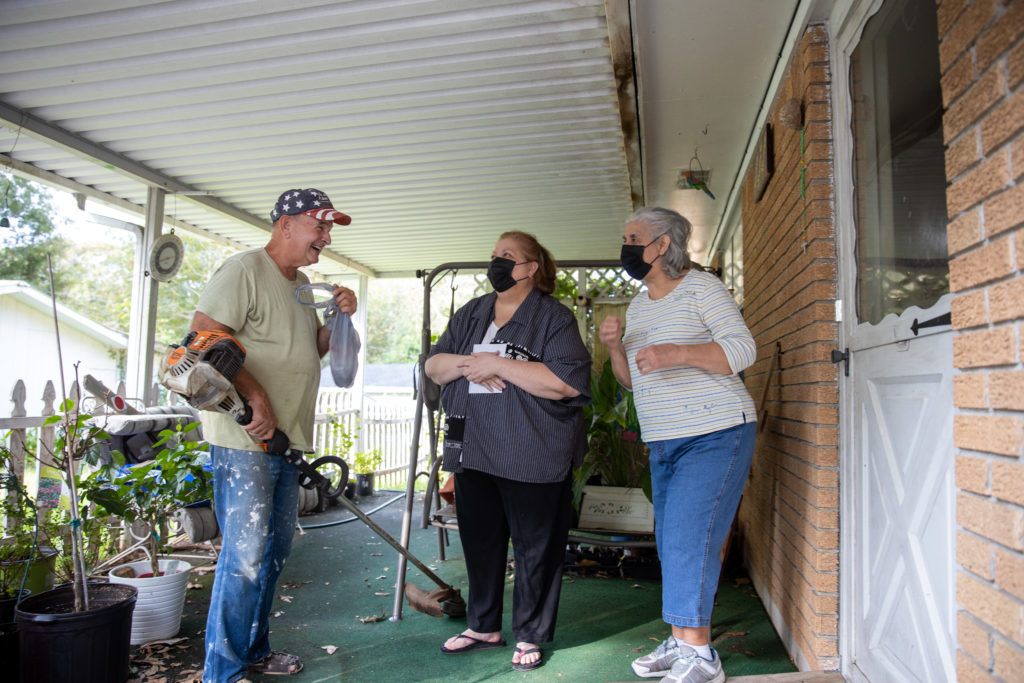
Here’s how this humble pastor has worked to rebuild a community torn apart by a horrible act of violence and racism, and how he spends his days helping his flock in small gestures that speak volumes in the Catholic Extension Society-supported Diocese of Beaumont.
On an early Sunday morning in June of 1998, James Byrd Jr., a well-liked 49-year old Black man, was making his way home on foot in the East Texas town of Jasper. In a veiled gesture of friendship, three white men in a pick-up truck stopped and offered him a ride. One of the men was familiar to Byrd, so he accepted.
Instead of being driven home, Byrd was taken to a back road where the men set upon him, beat him with a baseball bat, spray-painted his face and taunted him. They then chained Byrd by the ankles to the back of the pickup truck and dragged him three miles to his death. In a final act of racist brutality, they dumped his body on the steps of an African American church to be discovered later that morning by churchgoers arriving for services.
It was a hate crime of unfathomable proportion that shook the community, shocked the nation and catapulted the tiny town of Jasper to international headlines that labeled it as brazenly racist.
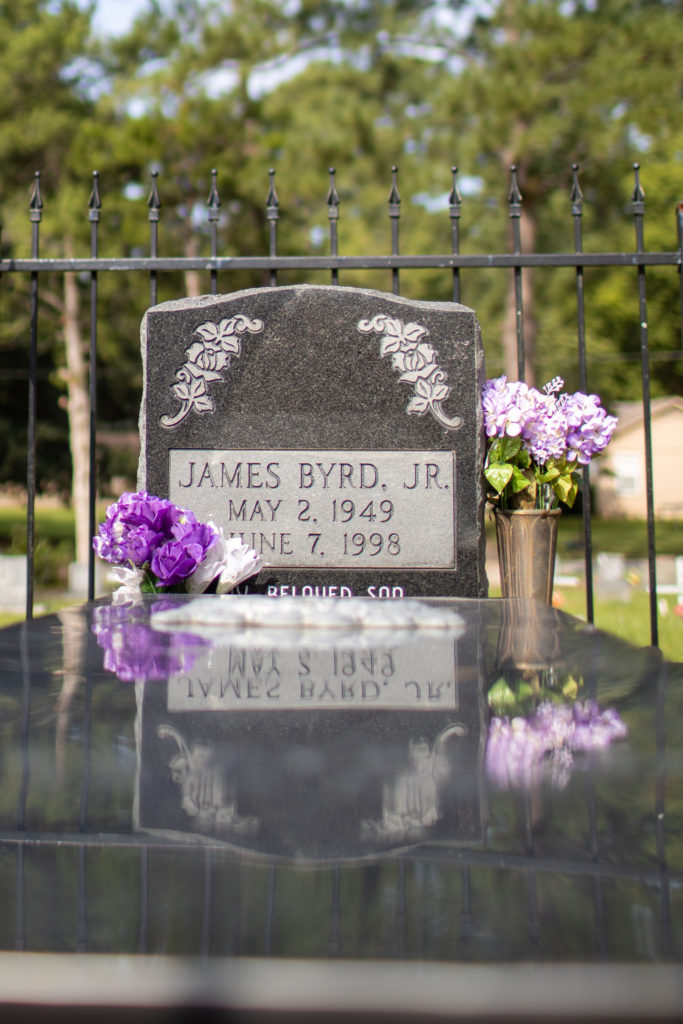
With people divided and broken, Father Ron Foshage, a quiet Catholic priest and a member of the Missionaries of La Salette, accepted God’s call to be His instrument of healing and reconciliation.
“The Jasper Priest”
When he first came to Jasper 35 years ago, Fr. Foshage himself encountered prejudice, as Catholics were the minority. Rather than greet the man wearing the Roman collar, folks often just turned their heads the other way. Undeterred, the priest simply began showing up at community events around town.
They invited me to join their Ministerial Alliance, and that became a turning point in my relationship with the entire town.”
Fr. Ron Foshage
“I came up as a priest during the Second Vatican Council, when Pope John XXIII underscored the importance of learning about and respecting other religions. I studied the Methodist, Baptist and Episcopalian traditions—and many others, even attending their services. The local pastors were impressed by my knowledge and understanding of their liturgies. They invited me to join their Ministerial Alliance, and that became a turning point in my relationship with the entire town.”
Soon, he was embraced as “Father Ron, the Jasper priest.” He quickly became involved in the Alliance working, even before the horrific murder of James Byrd Jr., to bring people together, regardless of color or religion through an annual event held at St. Michael’s, “Sing with One Voice,” a multi-denominational concert today in its 30th year.
The James Byrd Tragedy
By Sunday evening following the crime, three suspects were in police custody. On Monday, rumors of a hate crime ran rampant. There was shock and disbelief. Events spiraled quickly as national and international media and rallying groups including the Ku Klux Klan and Black Panthers descended on the courthouse square.
Jasper, a Christian town of 8,000 people and 54 churches, was “under siege.”
“It was terrifying and heartbreaking all at once,” said Father Foshage. “We had been a community, friends and neighbors, worshipping together, working together and living peacefully together. Now, our African American residents felt a need to arm themselves against our white residents. Tears rolled down my cheeks as I heard the KKK repeatedly scream hate over their loud speakers. I felt sorry to be of their same race.”
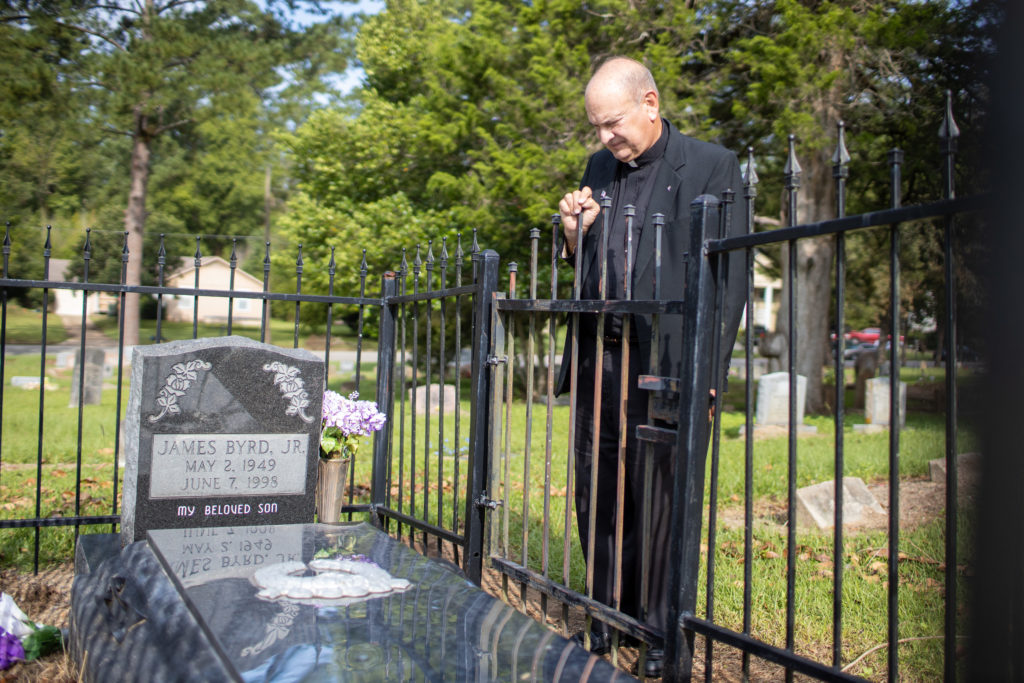
In the aftermath, the Ministerial Alliance began to work to heal the deep wounds and divide. It was led by Father Foshage and the Reverend Kenneth Lyons, Pastor of the Greater New Bethel Baptist Church, which was attended by Byrd and his family.
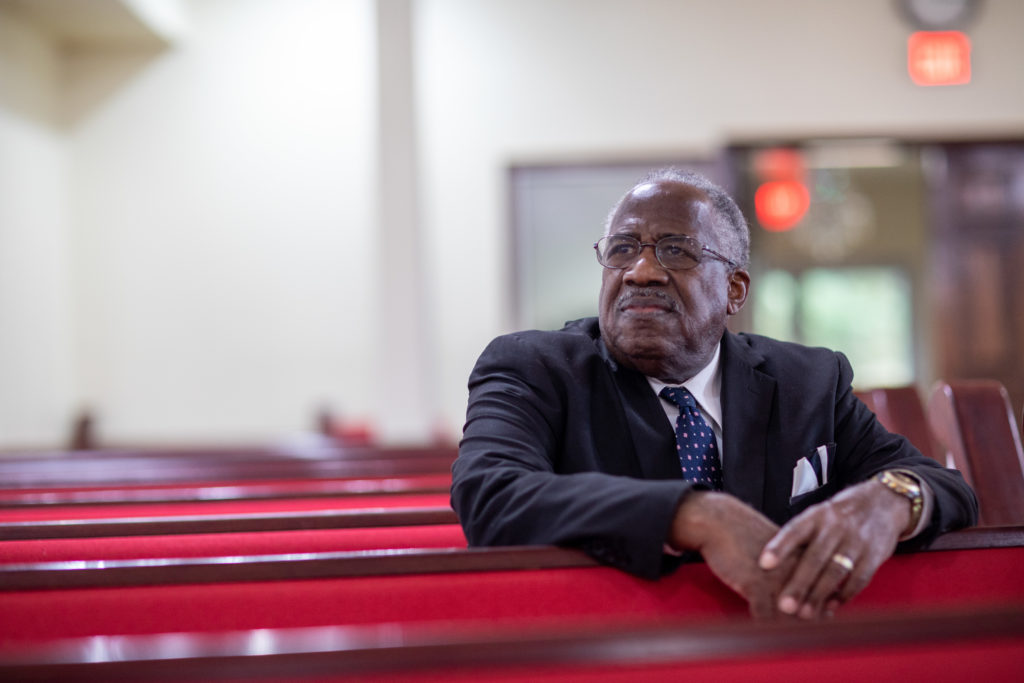
Father Foshage said, “We had no answers, but we were all asking the same question: why—how could something like this take place in our town.”
Father Foshage and Pastor Lyons brought the community together in prayer and dialogue. “Countless discussions,” according to Father Foshage. “We opened our very soul and examined our community to see what needed to be changed and how we transform the evil ingrained in the lives of some.”
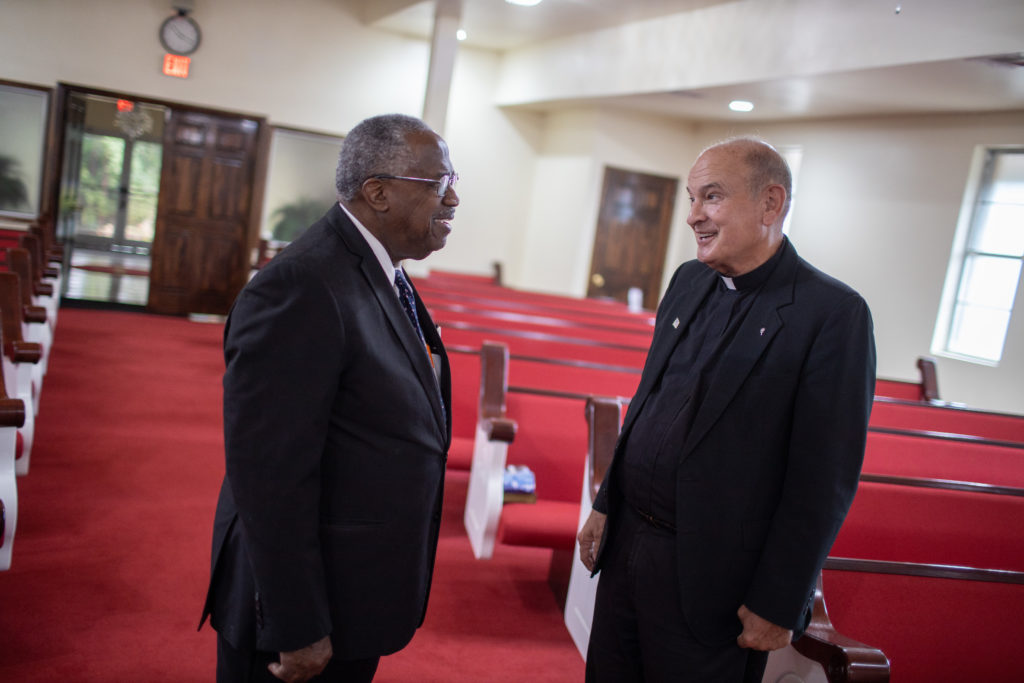
Father Foshage attributes the Ministerial Alliance with helping the people of Jasper endure the extremely difficult days, weeks and months as they buried James Byrd Jr. and lived through the trials of three murderers. “The Alliance had been together for many years before the crime. Our relationships with one another became the glue that held us together. We were hurting, not hating.”
The consoler in the courtroom
Ronald King, the father of one of the accused, was a frail, elderly and ill man who attended St. Michael’s from time to time but was not Catholic.
When Father Ron Foshage learned that none of King’s three other children would be attending the trial, he asked him if he wanted someone to sit with him in the courtroom. “The look on his face said it all,” according to Father Foshage. Without the priest by his side, the heartbroken King would have been all alone through the ordeal.
Father Ron’s outstanding, caring position during this trial is an inspiration to what Jasper can become.”
Gloria Mays, publisher of an African American newspaper in East Texas
Father Foshage was also called to minister to the prosecuting attorney, Guy James Gray, who was a practicing Catholic and member of St. Michael’s. As Gray introduced haunting pieces of evidence, one after another, his priest sat steps away consoling an often sobbing King. “Sometimes, it was like walking a tightrope,” explained Father Foshage.
At the time Gray said, “Father Ron was not trying to send a message, but if there is one in it, it is that we have got to help each other and to forgive the hate and anger.”
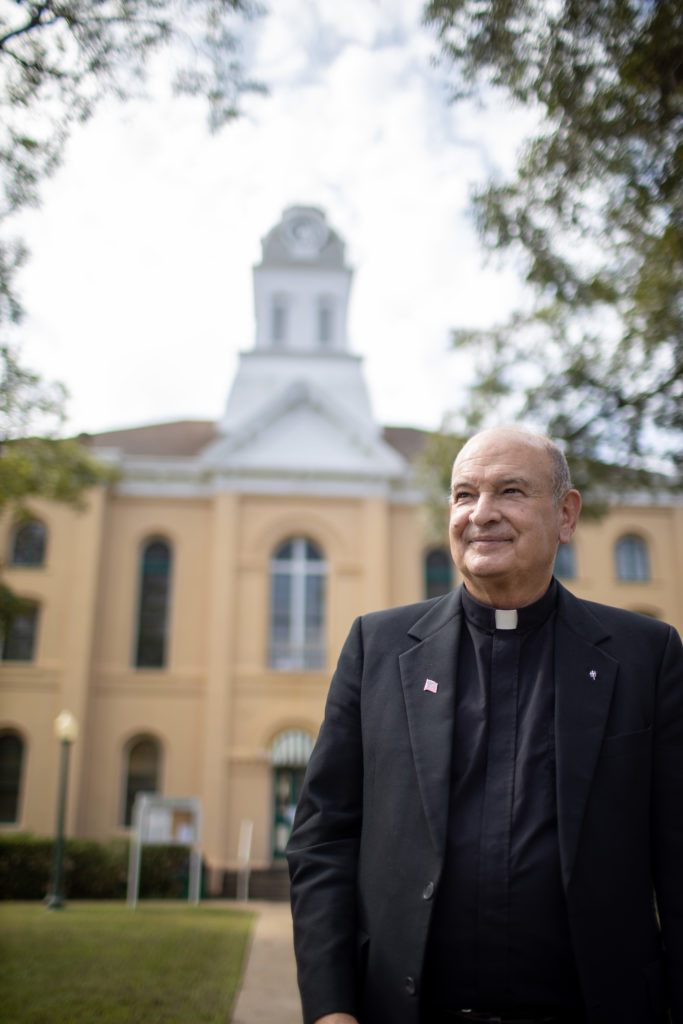
Gloria Mays, the publisher of an African American newspaper in East Texas said, “I am not going to say all Blacks and whites get along because they don’t, but Father Ron’s outstanding, caring position during this trial is an inspiration to what Jasper can become.”
A year following the trial, Ronald King converted to Catholicism.
Spreading the message of reconciliation
Since the trial, Father Ron Foshage has traversed the country as a leading voice against racism and hate crimes. In 1999, he spearheaded the dismantling of a 163-year-old fence that separated Black and white graves in the city cemetery. Later that year, the U.S. Department of Justice honored his work to improve race relations.
Father Foshage’s testimony before legislators helped to bring about the James Byrd Jr. Hate Crimes Prevention Act, which became federal law in 2009 as the Matthew Shepard and James Byrd Jr. Hate Crimes Prevention Act. In January of this year, he was named Jasper’s “Citizen of the Year.”
It’s not all that unusual that Father Foshage found himself in the center of rebuilding a community torn apart by what occurred in Jasper that terrible night.
The religious congregation of missionary priests and brothers to which Fr. Foshage belongs has a special “charism” of reconciliation. This means that wherever they are called to serve in the world, they act as facilitators and promoters of reconciliation through their ministry.
Father Foshage admits, “I never thought I would be called to live it out in such a visible way.”
Embodying the light of Christ
Out of the spotlight, Father Foshage is a selfless servant of Christ, working to provide housing to homeless veterans, delivering groceries to the elderly or ministering to the imprisoned. “The priest is tireless,” states one of his nominations for the Lumen Christi Award.
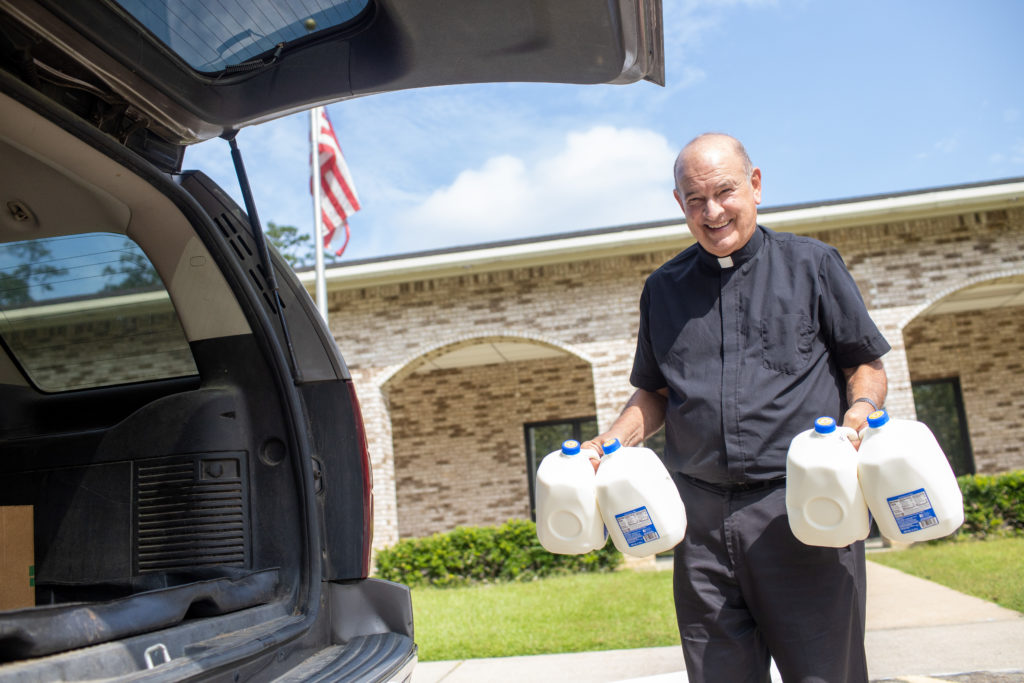
I am reminded that Pope Francis says we need to smell like our sheep. Well, cutting the grass, I sure do. I am grateful for that.”
Fr. Ron Foshage
Another nomination indicates a single measure makes a profound case for his recognition. “In a word, mileage,” it reads. “Father Foshage makes weekly 900-mile sojourns to celebrate six Masses.”
Father Ron Foshage is described as a “good and grateful” steward, often reminding the faithful of Our Lady of La Salette, one of the small parishes he leads in Kirbyville, Texas, that it was the donors of Catholic Extension Society who made the church possible by providing a building grant.
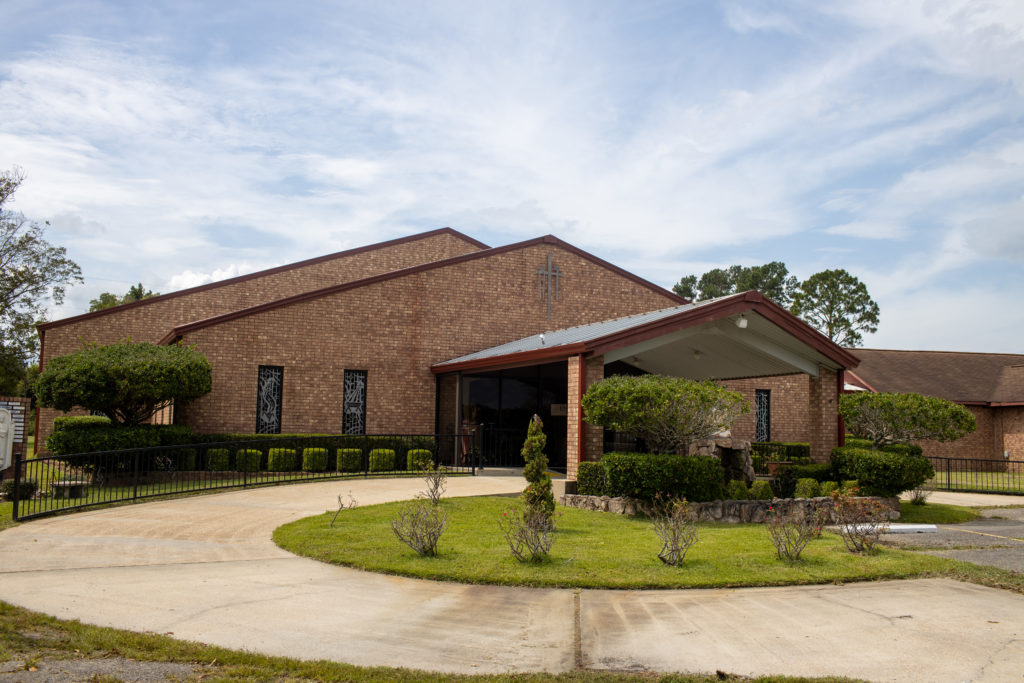
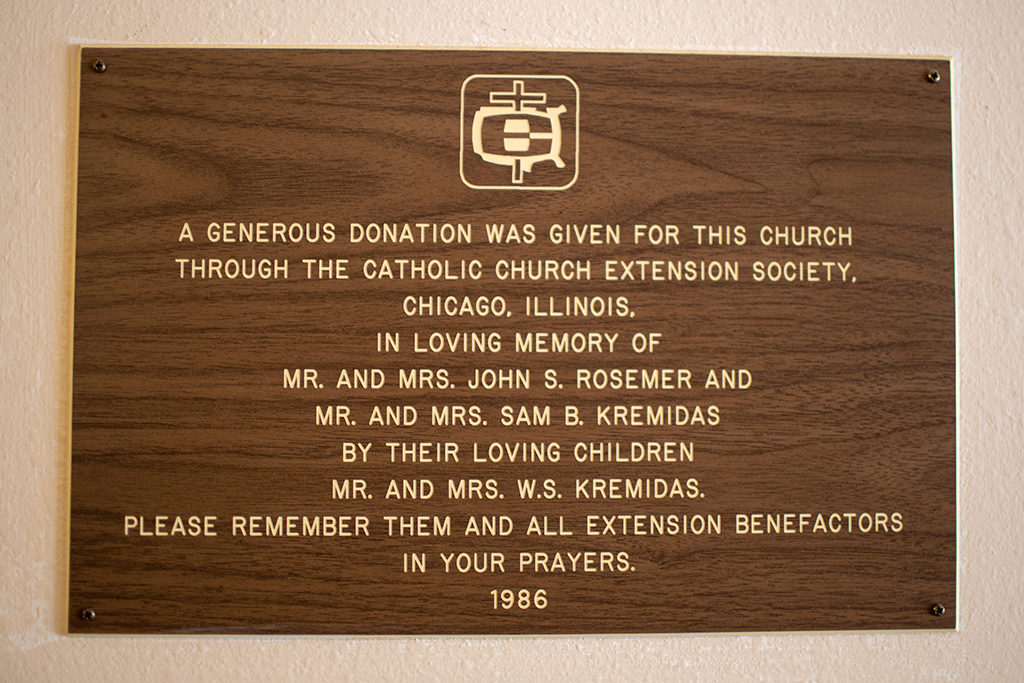
He also cuts more than 30 lawns a week.
“I started doing it on my own to save the parish money,” said Father Foshage.
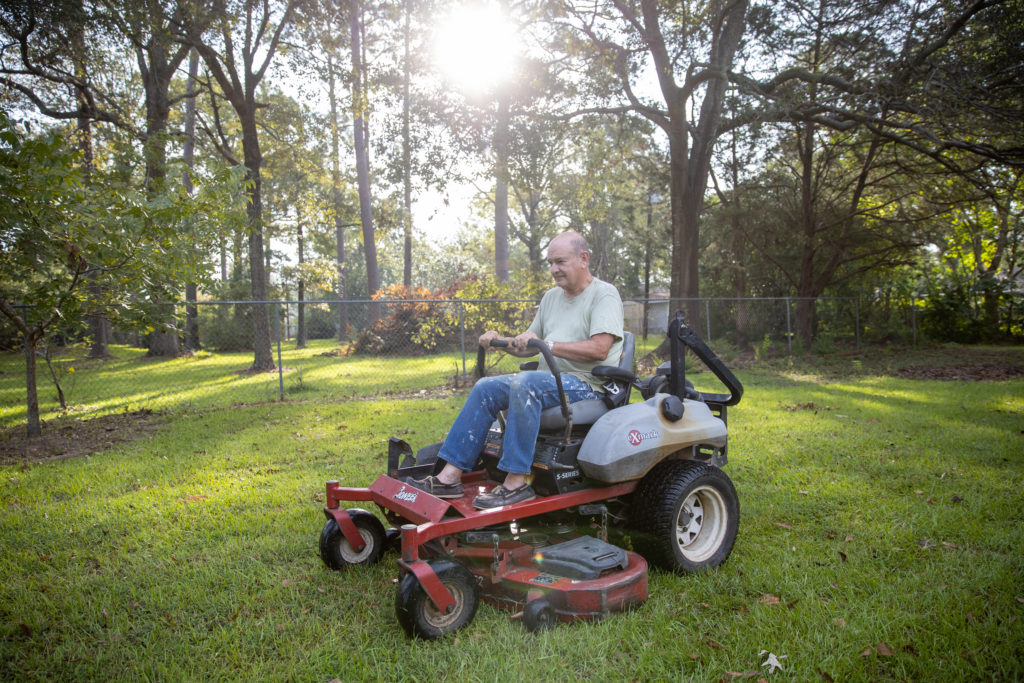
He continued, “But then some folks around town started telling those in need to ‘Go see Father Ron. He helps the poor.’ And I am reminded that Pope Francis says we need to smell like our sheep. Well, cutting the grass, I sure do. I am grateful for that.”


